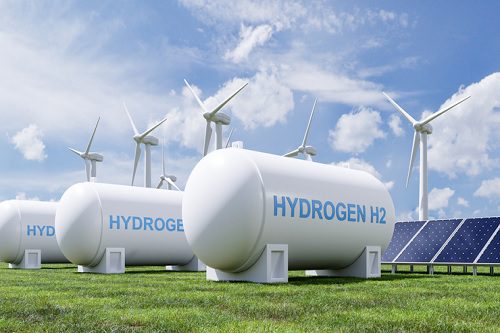Supporting Europe’s energy transition

Authored by Liberty
The European market has seen significant investment in energy transition in the last few years, brought about predominantly by initiatives and incentives of various governments. However, the transition has accelerated in the past year over concerns about Europe’s energy independence and security.
The “energy transition” refers to the shift from fossil-based systems of energy production and consumption to renewable energy sources. By investing in renewable energy sources like wind and solar, as well as lithium-ion batteries and hydrogen, Europe can harness its own energy on the continent, reducing its reliance on imported fossil fuels, such as oil, natural gas and coal. At Liberty Specialty Markets (LSM), we are seeing first-hand how the energy transition and urgency for energy independence is affecting our clients and new players in the market.
Europe is under increasing pressure to transition to renewable energy, with the EU aiming to be climate-neutral by 2050. This objective is, amongst other things, the focus of the European Green Deal and is in line with the EU’s commitment to global climate action under the Paris Agreement.
These initiatives are forcing investors to review their energy lending policy, shifting investments towards greener energy projects that support the transition. Therefore, in order to meet the targets set by these initiatives, our clients and those new in the market, will promptly need to start taking steps to transition.
To aid the energy transition and decarbonise the EU in a cost-effective way, the EU has also put forward a comprehensive framework to support the uptake of renewable and low-carbon hydrogen in the EU’s hydrogen strategy and REPowerEU plan. The REPowerEU plan has set the goal of domestically producing ten million tonnes of renewable hydrogen by 2030, corresponding to around 14% of total EU power consumption in 2030 according to the European Commission.[1]
The EU’s commitments under the Paris Agreement are also supported by the EU Innovation Fund, which will provide ten billion euros of support over the next ten years for the commercial demonstration of innovative low-carbon technologies. We have seen the impact of these initiatives on our clients, with an increase in the number of organisations looking to use hydrogen and its derivatives instead of fossil fuels, especially in the marine market.
European clients, global investments
LSM is positioned as a key player in supporting new and existing clients in the energy transition. Interestingly, we have seen a shift in European companies investing in energy transition projects across the globe. For example, we recently supported clients in Spain who invested in solar energy projects in Latin America and the US.
We have a wide range of insurance products to support the energy transition. For example, we provide coverage to protect equipment whilst being transported to the construction site. We also protect against a wide range of perils during both the construction and operational phases. Even before the project starts, we provide surety bonds and financial risks solutions to secure financing.
Our clients come from a variety of industries and include existing energy clients involved in oil and gas who are serious about transitioning to a renewable-led energy model. In this area, our strategy is not to shy away, but to aid them in their transition. Alongside current projects, we are also looking to support and partner with new companies in the market who are investing in renewables across Europe.
Enabling the energy transition through expertise
Over the past few years, brokers have invested in developing energy transition capabilities, for example by recruiting engineers and experienced brokers in the renewable energy space. At LSM, we have made similar investments in talent such as recruiting renewable energy engineers and underwriters across Europe, as business placement expands its outlets.
Any transition comes with challenges. For the insurance industry, these include capacity, lack of existing data and profitability. For Europe’s energy transition to be successful, the insurance industry needs to be ready to provide support.
LSM will work to address these challenges to enable support of the European energy transition. We aim to offer a wide range of solutions based on traditional commercial insurance products. These include construction, property, third party liability, marine cargo, environmental liability, political risks. We also offer customised risk transfer solutions such as parametric covers which are relevant to renewable infrastructure investment. We believe we can play a critical role in supporting clients in transitioning to a net-zero economy.




